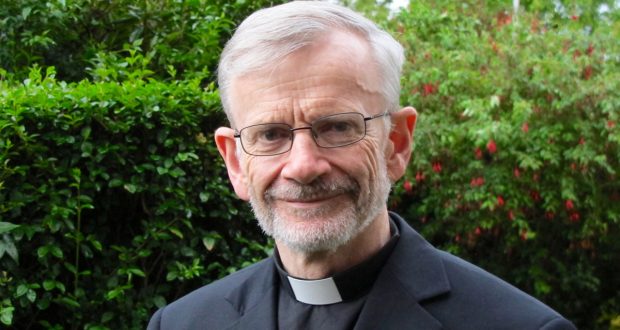Ireland’s newest bishop has encouraged Catholics to take pride in all the good work that the Church continues to do with the vulnerable and marginalised.
Bishop Alan McGuckian SJ – who was ordained Bishop of Raphoe at the weekend – also said that the Church in Ireland needs to increasingly embrace a model where laypeople are given co-responsibility for the future with bishops and priests.
Speaking to The Irish Catholic, Bishop McGuckian said Catholics in today’s Ireland need to develop a Faith capable of thriving in an era without cultural supports, and that this Faith should not simply be a personal affair.
Prayer
“We – all of us – have to learn to be people of real prayer, incarnated prayer, where relationship with God is a part of our lives: a part of our individual lives and a part of the web of the way we live in our communities,” he said, pointing out that social realities are key to this.
With new Government figures showing that nearly 8,000 people are known to be homeless in Ireland, an increase of 25% since June 2016, Dr McGuckian says that Catholics and Church organisations have a vital part to play in battling the national homelessness crisis and helping those who fear falling into homelessness.
“Quietly the Catholic Church’s agencies are on the forefront of that all the time in ways that most of us don’t have to the forefront of our minds all the time,” he said, highlighting especially the “tremendous work” of the Society of Saint Vincent de Paul.
“I think we as a Church need to know that is key to who we are as people of Faith,” he said, emphasising that since care for the marginalised is central to Catholicism, Church-related bodies work constantly throughout Ireland to help struggling people. Catholics, he said, should “take courage from the fact that quietly things are being done in our name and on our behalf, often unbeknownst to us”.
Calling for Catholics to support such organisations, he spoke about how much more can be done in the Church when clergy and laypeople work together, citing his experience working “in a co-responsible way” since 2011 with the Diocese of Down and Connor’s ‘Living Church’ project.
Rejecting suggestions that advocacy of greater lay involvement in Church life is purely a response to a decline in clerical and religious vocations, he said the vocation of the laity to be the face of Christ – and the face of the Church – in the world has been clearly acknowledged since the Second Vatican Council.
“I think now may be the time when something that has been there is called to come to the fore and to take on real flesh and live. It has to always be clergy and laity working together,” he said.


 Greg Daly
Greg Daly Bishop Alan McGuckian SJ
Bishop Alan McGuckian SJ